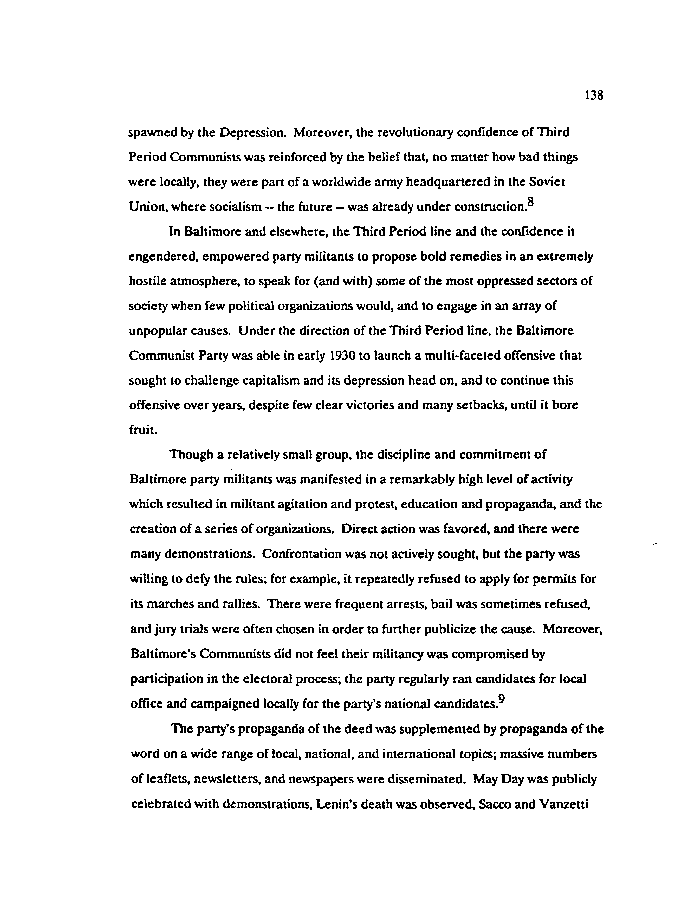|
138
spawned by the Depression. Moreover, the revolutionary confidence of Third
Period Communists was reinforced by the belief that, no matter how bad things
were locally, they were part of a worldwide army headquartered in the Soviet
o
Union, where socialism — the future — was already under construction.0
In Baltimore and elsewhere, the Third Period line and the confidence it
engendered, empowered party militants to propose bold remedies in an extremely
hostile atmosphere, to speak for (and with) some of the most oppressed sectors of
society when few political organizations would, and to engage in an array of
unpopular causes. Under the direction of the Third Period line, the Baltimore
Communist Party was able in early 1930 to launch a multi-faceted offensive that
sought to challenge capitalism and its depression head on, and to continue this
offensive over years, despite few clear victories and many setbacks, until it bore
fruit.
Though a relatively small group, the discipline and commitment of
Baltimore party militants was manifested in a remarkably high level of activity
which resulted in militant agitation and protest, education and propaganda, and the
creation of a series of organizations. Direct action was favored, and there were
many demonstrations. Confrontation was not actively sought, but the party was
willing to defy the rules; for example, it repeatedly refused to apply for permits for
its marches and rallies. There were frequent arrests, bail was sometimes refused,
and jury trials were often chosen in order to further publicize the cause. Moreover,
Baltimore's Communists did not feel their militancy was compromised by
participation in the electoral process; the party regularly ran candidates for local
office and campaigned locally for the party's national candidates.9
The party's propaganda of the deed was supplemented by propaganda of the
word on a wide range of local, national, and international topics; massive numbers
of leaflets, newsletters, and newspapers were disseminated. May Day was publicly
celebrated with demonstrations, Lenin's death was observed, Sacco and Vanzetti
|

